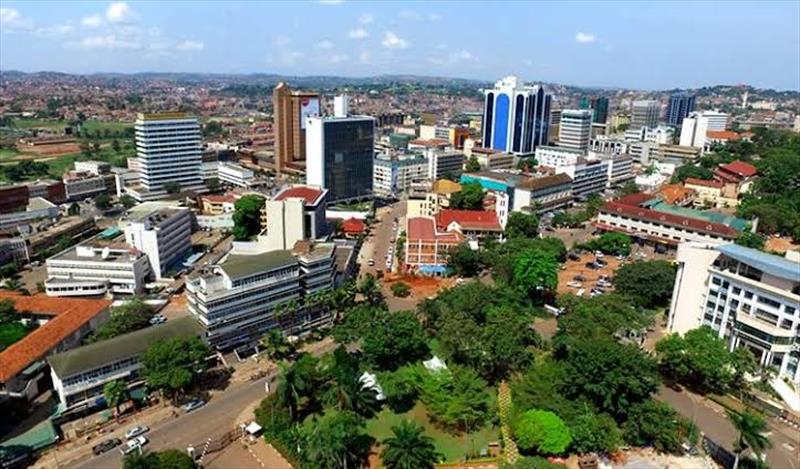In Niger, a landlocked country in West Africa, the real estate market is a new industry with exceptional prospects and difficulties. A burgeoning market for real estate transactions has been brought about by the nation’s growing urban population and rising housing demand. Becoming a real estate agent needs an array of skill development, market understanding, regulatory compliance, and a commitment to professional advancement in this dynamic business. This guide provides an extensive guide for navigating the Niger real estate startup process.
The Nigerien Real Estate Landscape
Being successful as a real estate agent in Niger requires an understanding of the country’s real estate market. The local real estate market is affected by a number of factors, including urbanization, socioeconomic growth, and government attempts to address the housing crisis. Cities like the capital, Niamey, and other major cities like Maradi and Zinder are seeing an increase in demand for residential and commercial real estate.
But the market in Niger also illustrates the difficulties faced by a developing nation. Transactions may be made more difficult by inadequate infrastructure, fluctuating property valuations, and a need for more thorough property records. To successfully navigate the market and build credibility with clients, prospective agents need to grow familiar with these dynamics.

Regulatory Requirements and Legal Framework
Real estate practice in Niger is regulated by laws designed to guarantee equitable and open dealings, much like any other professional activity. The country’s property laws must be understood, and all regulatory criteria must be met by anyone hoping to become an agent.
Conducting a study on land registration procedures, tax consequences, and property ownership restrictions is the first step. Due to the combination of traditional and modern land tenure systems in Niger, it is essential to comprehend local customs and traditions. These complicated matters can be made more explicit by speaking with legal professionals or participating in property law education courses.
Furthermore, real estate agents in Niger may need to register with government agencies overseeing commercial activities. Obtaining a business license or meeting specific criteria set by local authorities is often required to operate legally.
Educational Background and Training
Real estate practice in Niger is regulated by laws designed to guarantee equitable and open dealings, much like any other professional activity. The country’s property laws must be understood, and all regulatory criteria must be met by anyone hoping to become an agent.
Conducting a study on land registration procedures, tax consequences, and property ownership restrictions is the first step. Understanding local customs and traditions is crucial since Niger combines traditional and modern land tenure systems. By taking property law education classes or consulting with legal experts, these complex issues can be clarified.
Practical training is equally essential in order to prepare for a profession in real estate. By taking part in workshops, watching seasoned professionals, or interning with reputable real estate companies, aspiring agents can obtain invaluable experience. This practical experience aids in the development of critical abilities, including market analysis, customer management, and negotiating.
For those without access to formal education or training opportunities, self-study and online courses in real estate principles can serve as an alternative. These resources often cover topics like property valuation, marketing strategies, and legal compliance, equipping learners with the knowledge required to excel in the profession.
Building a Professional Network
Building a solid professional network is essential for success in a market like Niger, where relationships and trust are critical. Building relationships with a range of stakeholders, such as financial institutions, legal counsel, property developers, and prospective customers, is advantageous for real estate brokers.
Access to networking events, mentorship opportunities, and industry resources can be obtained by becoming a member of local or regional real estate associations. An agent’s visibility and reputation can be further increased by attending conferences, trade exhibits, and seminars centered on West African real estate trends.
Engaging with community leaders and organizations is another effective way to build trust and expand one’s client base. Understanding local customs and traditions fosters more robust relationships, which are invaluable in a field that relies heavily on word-of-mouth referrals.
Developing Essential Skills
A good real estate agent blends excellent people skills with technical knowledge. Since agents have to convince clients of complex facts, they must be proficient communicators. Being competent in local dialects and French, Niger’s official language, could significantly enhance an agent’s capacity to communicate with many clients.
Negotiation is another critical skill that agents must develop. Creating win-win solutions guarantees, in effect, transactions and happy customers, whether one is representing buyers or sellers. Time management, organizational skills, and problem-solving talents are other crucial competencies.
An increasing level of knowledge with digital tools is necessary in today’s competitive economy. Agents should become competent in online marketing platforms, software for property management, and customer relationship management (CRM) systems. These technologies speed up operations and improve client satisfaction.
Licensing and Certification
People in Niger may need to register their activity with the appropriate authorities or get a license in order to work lawfully as real estate agents. Even if the licensing procedure in Niger might not be as structured as in some other nations, prospective agents should check with industry associations or local government offices to confirm any needs.
An agent’s professional standing can be enhanced by acquiring certifications from respectable real estate associations, even if they were gained through overseas programs. Clients greatly respect certifications in fields like marketing, real estate law, and property appraisal since they reflect a dedication to quality work and moral behavior.
Setting Up a Real Estate Business
For those looking to establish their own real estate business in Niger, additional steps are necessary. Registering the company, creating a comprehensive business plan, and securing appropriate funding are essential components of this process. Entrepreneurs must also ensure compliance with local laws, including taxation and labor regulations.
Marketing plays a pivotal role in attracting clients and building a successful business. In a digital age, creating an online presence is non-negotiable. A well-designed website showcasing property listings, client testimonials, and contact information serves as a valuable marketing tool. Effective listing promotion and communication with potential customers can also be accomplished via social media sites like Facebook and Instagram.
Overcoming Market Challenges
The Nigerian real estate market presents unique challenges that agents must address to succeed. Economic instability, fluctuating property values, and limited access to reliable property data can complicate transactions. Agents must remain adaptable and proactive in finding solutions to these issues.
Continuous education is essential for staying ahead of market trends and government policies. Agents who invest in professional development are better equipped to anticipate client needs and provide innovative solutions.

Ethical Practices and Cultural Sensitivity
Ethical behavior is the cornerstone of a successful real estate career. Agents must prioritize transparency, honesty, and fairness in all dealings. Providing accurate information about properties and ensuring clients understand the terms of transactions builds trust and fosters long-term relationships.
In Niger, cultural sensitivity is equally essential. Traditional values and norms often influence property ownership and transaction practices. Agents who respect these customs and approach their work with cultural awareness are more likely to earn the trust of their clients.
Continuous Professional Development
The real estate industry is constantly evolving, with new technologies, market trends, and client expectations shaping the profession—agents who commit to lifelong learning position themselves as leaders in the field.
Agents stay current on best practices by attending workshops, taking additional classes, and gaining specialty certifications. In the current market, subjects such as digital marketing, sustainable real estate development, and property investment strategies are very relevant.
Leveraging Technology in Real Estate
The approach that real estate deals use is changing due to technology. Websites for listing properties, virtual tours, and data analytics for market analysis are some of the resources available to agents in Niger. These improvements increase productivity and promote customer happiness.
Agents need to investigate the utilization of mobile applications for managing transactions and communicating with clients. Agents can maintain their competitiveness in an increasingly digital environment by keeping up with technical developments.
Opportunities in the Nigerien Real Estate Market
Despite its challenges, Niger’s real estate sector offers significant opportunities. Urban population expansion and the government’s emphasis on housing and infrastructure development generate demand for qualified workers in the industry.
These are opportunities for real estate agents to establish successful careers by representing themselves as informed, trustworthy, and client-focused. Offering technical services, like helping foreigners or enabling real estate investments, expands an agent’s area of responsibility even more.
To become a real estate agent in Niger is a fulfilling profession that calls for determination, adaptability, and a dedication to quality. Aspiring agents can position themselves as reliable experts in this expanding field by learning the market, following legal standards, and obtaining the necessary abilities.
The road to success entails ethical behavior, lifelong learning, and using technology to adapt to changing customer demands. For people who are enthusiastic about real estate and customer service, a career in Niger real estate offers both financial rewards and personal fulfillment with the correct attitude.










